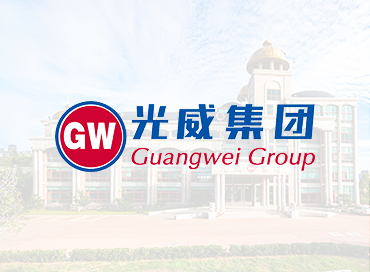Regulations of Shandong Province on Collective Consultation of Enterprise Wages
- Categories:Union
- Author:
- Origin:
- Time of issue:2018-05-07
- Views:99
(Summary description)Adopted at the 24th meeting of the Standing Committee of the 12th People's Congress of Shandong Province on November 26, 2016
Regulations of Shandong Province on Collective Consultation of Enterprise Wages
(Summary description)Adopted at the 24th meeting of the Standing Committee of the 12th People's Congress of Shandong Province on November 26, 2016
- Categories:Union
- Author:
- Origin:
- Time of issue:2018-05-07
- Views:99
Adopted at the 24th meeting of the Standing Committee of the 12th People's Congress of Shandong Province on November 26, 2016
Chapter One
Article 1 In order to regulate the collective bargaining of enterprise wages, protect the legitimate rights and interests of employees and enterprises, and promote harmonious and stable labor relations, in accordance with the "Labor Law of the People's Republic of China", "Labor Contract Law of the People's Republic of China", "Trade Union Law of the People's Republic of China", etc. The laws, administrative regulations, and the actual conditions of the province are formulated to formulate these regulations.
Article 2 The collective bargaining and service and management of enterprise wages within the administrative region of this province shall be governed by these Regulations.
Article 3 The collective bargaining of enterprise wages referred to in these Regulations refers to the conduct of equal consultations between the employees and the enterprise on matters such as the enterprise’s wage distribution system, wage distribution form, wage income level, and wage payment methods in accordance with the law.
The collective wage contract referred to in these Regulations refers to a special written agreement between the employees and the enterprise on the matters listed in the preceding paragraph in accordance with the law on the basis of consensus.
Article 4 Enterprises shall conduct collective wage negotiation in accordance with the law.
The collective negotiation of enterprise wages should follow the principles of legality, equality, openness, and good faith, take into account the interests of both employees and the enterprise, and ensure that the actual wage level of employees is compatible with the enterprise’s labor productivity, economic benefits, and local economic and social development.
Article 5 The people's government at or above the county level shall formulate and improve relevant policies to promote the collective negotiation of enterprise wages in an orderly manner in accordance with the law.
The human resources and social security department of the people's government at or above the county level shall supervise and manage collective wage negotiations in enterprises in accordance with the law.
Local trade unions at all levels, township (sub-district) trade unions, and industrial trade unions provide guidance to employees in collective wage negotiations and supervise the implementation of special collective wage contracts.
Industry and commerce federations, enterprise federations, industry associations and other representative organizations of enterprises shall guide, support, help or participate in collective negotiation of enterprise wages.
Article 6 The human resources and social security department of the people's government at or above the county level, in conjunction with labor unions and enterprise representative organizations, shall study and handle major issues of collective wage negotiations in enterprises through a tripartite mechanism for coordinating labor relations.
Chapter Two Negotiation Representative
Article 7 The number of representatives of both parties in the collective negotiation of enterprise wages shall be equal, and each party shall have at least three representatives. The specific number shall be negotiated by both parties, and a chief negotiating representative shall be determined from it.
The proportion of representatives of front-line employees in the employee-side consultation representatives shall not be less than one-third.
Article 8 The chief negotiating representative of the employees shall be the chairman of the trade union of the enterprise; if the chairman of the trade union is unable to perform the duties of the chief negotiating representative for some reason, the vice chairman or committee member who presides over the work of the trade union shall be the chairman. Other consultation representatives of the employee side shall be nominated by the trade union of the enterprise and submitted to the employee representative assembly or all employees for discussion, and approved by all employee representatives or more than half of all employees.
For enterprises that have not yet established a trade union, the employee-side consultation representatives are democratically recommended by the superior trade union to guide the employees, and with the consent of more than half of all employees, their chief consultation representatives are democratically elected from among the employee-side consultation representatives.
Article 9 The chief negotiating representative of the enterprise shall be the legal representative of the enterprise or other management personnel entrusted by him in writing, and the other negotiating representatives shall be designated by the chief negotiating representative in writing.
Article 10 The negotiation representatives of both parties shall not concurrently serve as each other.
Workers of trade unions shall not serve as representatives for consultations on the enterprise side; persons in charge of the enterprise, investors and their close relatives shall not serve as representatives for consultation on the employee side.
Article 11 After the consultation representative is determined, it shall be announced in the enterprise within five days.
The term of office of the negotiation representative starts from the date of determination to the date when the special collective wage contract expires.
Article 12 The chief negotiating representatives of both parties may appoint in writing lawyers, grassroots legal service workers and other professionals outside the enterprise to serve as their own consultation consultants. After the two parties have negotiated and agreed, a third-party professional consulting agency can be introduced to participate in the collective negotiation of corporate wages.
Article 13 The consultation representative shall perform the following duties:
(1) Collect, study and negotiate relevant information and information;
(2) Draft negotiation topics, and truthfully provide the other party with information and information related to the negotiation;
(3) Participate in consultations, truly reflect the wishes of the party, and put forward consultation opinions;
(4) To inform the party of the negotiation situation in a timely manner, solicit opinions, and accept inquiries;
(5) Participate in the settlement of collective wage negotiation disputes on behalf of the party;
(6) Supervise the performance of the special collective wage contract;
(7) Other responsibilities stipulated by laws and regulations.
In addition to performing the duties specified in the preceding paragraph, the chief negotiating representative is also responsible for the organization and coordination of collective wage negotiations.
Article 14 If one party to the collective wage negotiation of an enterprise needs to change the negotiation representative or the negotiation representative is vacant, it shall promptly generate a new negotiation representative in accordance with the procedures stipulated in these Regulations and notify the other party in writing.
Article 15 The enterprise shall provide negotiation representatives with the necessary working conditions for participating in collective wage negotiation. Consultation representatives participating in collective wage negotiation and related meetings, training, etc. shall be deemed to provide normal labor, and their wages and benefits will remain unchanged. Enterprises shall not terminate their labor contracts because of the negotiation representatives performing their duties in accordance with these regulations.
If the labor contract expires while the negotiation representative is performing his duties, the labor contract period will be automatically extended to the expiration of the term; if the negotiation representative does not agree to automatically extend the labor contract period, the labor contract shall be terminated, and the qualification of the negotiation representative shall be terminated accordingly.
Article 16 Negotiation representatives shall jointly maintain the normal production and work order of the enterprise, keep the business secrets learned during the collective wage negotiation process, must not use improper means to interfere with the collective wage negotiation, and must not threaten, buy, deceive, or retaliate. .
Chapter 3 Negotiation content
Article 17 The collective negotiation of enterprise wages mainly includes the following contents:
(1) Wage distribution system, wage standard, wage distribution form and wage payment method;
(2) The annual average wage level of employees and their adjustment range and adjustment methods;
(3) The minimum wage standard of the enterprise;
(4) Methods of distribution of bonuses, allowances, subsidies, etc.;
(5) Hourly wages, piece rate unit price and labor quota standards;
(6) Probation period, sick leave, female employees' wages and benefits during pregnancy, childbirth, breastfeeding, and various paid holidays;
(7) The period of the special collective wage contract and the conditions for modification, cancellation and termination;
(8) Liability for breach of contract;
(9) Other matters that the two parties believe should be negotiated.
The employees and the enterprise may negotiate all or part of the content specified in the preceding paragraph, unless otherwise provided by laws and regulations.
The term of the collective wage contract is generally one year, and the longest period is three years.
Article 18 The collective negotiation of enterprise wages shall be based on the following factors:
(1) The labor cost level of regions, industries, and enterprises;
(2) The average wage level of employees in regions and industries;
(3) The human resources market wage guidance price, wage guidance line, and minimum wage standards issued by the government;
(4) Consumer price index of urban residents in the region;
(5) Labor productivity and economic benefits of enterprises;
(6) The preservation and appreciation of corporate assets;
(7) The total wages of employees and the average wages of employees in the previous year;
(8) The supply and demand situation of local human resources;
(9) Other factors related to collective wage negotiation.
Article 19 The wages and welfare benefits stipulated in the special collective wage contract shall conform to the government's macro-control policy on wage distribution, comprehensively consider the factors listed in Article 18 of these regulations, and determine according to the actual situation of the enterprise and employees.
The wages and benefits stipulated in the special collective wage contract apply to all employees who have established a labor relationship with the company.
The wages and benefits stipulated in the labor contract between the enterprise and the individual employees shall not be lower than the standards stipulated in the special collective wage contract.
Article 20 The labor quota standard negotiated by the employees and the enterprise shall be the amount of work that can be completed by more than 90% of the employees of the enterprise under normal working conditions and legal working hours.
Chapter 4 Negotiation Procedure
Article 21 Both the employee and the enterprise may submit an offer for collective wage negotiation.
If one party puts forward an offer for collective wage negotiation, the other party shall reply within ten days from the date of receiving the offer, and shall not refuse to negotiate without justified reasons.
The offer and response shall be in written form, clarify the time, place, content, etc. of the negotiation, and explain the position of the party.
Article 22 When an enterprise trade union proposes an offer for collective wage negotiation, it shall listen to the opinions of the employees of the enterprise; if a union has not been established, a consultation representative democratically recommended by the superior trade union shall make an offer for collective wage negotiation.
The legal representative of the enterprise or other management personnel entrusted by him in writing may submit an offer for collective negotiation of wages to the employees.
Article 23 The employees and the enterprise shall provide each other with information and materials related to the negotiation ten days before the start of the negotiation.
The enterprise shall provide information and materials such as the operating income, taxes paid, net profit, total wages of employees and average wages of employees, payment of social insurance premiums, etc. of the previous year.
Article 24 The enterprise trade union or the employee’s consultation representative shall report to the higher trade union five days before the start of the consultation.
Article 25 The collective negotiation of enterprise wages generally takes the form of a negotiation meeting.
The negotiation meeting is chaired by the chief negotiation representatives of both parties in turn. The first negotiation meeting shall be chaired by the chief negotiation representative of the party making the offer.
Article 26 The negotiation representatives of both parties shall jointly determine a non-negotiation representative to serve as the recorder of the negotiation meeting. The recorder shall truthfully and objectively record the negotiation process and results, and keep known commercial secrets.
The minutes of the meeting shall be signed and confirmed by all the negotiation representatives participating in the negotiation meeting.
Article 27 When the representatives of both parties reach a consensus, a draft collective contract for wages shall be formed and submitted to the employee representative assembly or all employees for discussion, and approved by all employee representatives or more than half of all employees.
After the draft of the collective wage contract is passed, the enterprise will prepare the text of the collective wage contract, which will be signed and sealed by the chief negotiating representatives of both parties. If the draft collective wage contract is not passed, the negotiating representatives of both parties shall renegotiate and modify it.
Article 28 The period for collective negotiation of enterprise wages is 60 days, from the day when the party accepting the offer replies and agrees to the negotiation, and ends on the day when the chief negotiation representatives of both parties sign and seal the collective wage contract.
In the event of force majeure, the negotiation can be suspended. The time, place and content of the re-negotiation shall be negotiated by both parties. The suspension period is not included in the negotiation period.
Article 29 The enterprise shall, within ten days from the date when the special collective wage contract is concluded, and in accordance with the management authority, submit the following information to the human resources and social security department:
(1) Explanation of collective wage negotiation;
(2) Wage special collective contract text;
(3) The resolution of the workers' congress or all employees discussing and passing the draft collective contract for wages;
(4) The list of negotiation representatives of both parties and a copy of the valid ID of the chief negotiation representative;
(5) A copy of the business license of the enterprise.
Article 30 The human resources and social security department shall, within 15 days from the date of receipt of the relevant materials, review the legality of the parties to the special collective wage contract and their negotiation representative qualifications, negotiation procedures, and contract content, and issue a review opinion. And serve it to both parties to the negotiation.
The human resources and social security department shall, within 15 days after receiving the text of the collective wage contract, if no objection is raised, the collective wage contract will become effective; if an objection is raised, the negotiation representatives of the two parties will re-negotiate and resubmit the objection.
Article 31 The negotiation representatives of both parties shall announce the contract text to all members within seven days from the effective date of the special collective wage contract; the employee negotiation representative shall also submit the contract text and other relevant materials to the higher-level trade union for the record.
The enterprise shall report the performance of the special collective wage contract to the workers’ congress or all employees at least once a year.
Chapter 5 Industrial and regional collective wage negotiation
Article 32 In areas where industries are concentrated or small enterprises are concentrated, industry or regional collective wage consultations may be carried out on related matters such as the wage level, labor quota, wage payment method, wage payment time and other related matters of the industry or the region. , To conclude a special collective wage contract.
Article 33 Industrial and regional wage collective consultation representatives shall be selected by trade unions in the industry or in the region, and shall be announced to all employees of the industry or in the region participating in the negotiation. The chief negotiating representative shall be the chairman of the trade union.
Article 34 Industrial and regional collective wage negotiation representatives of enterprises shall be directly selected by the enterprise representative organizations in the industry or the region, or they may be democratically elected by all enterprises participating in the negotiation in the industry or the region. The chief negotiating representative is democratically elected by the negotiating representative of the enterprise.
Article 35 The draft of the industry or regional wage special collective contract formed through collective consultation shall be submitted to the employee representative assembly of each enterprise or all employees participating in the negotiation within the industry or the region, and shall be discussed by all employee representatives or all employees of the enterprise. Passed by more than half of the employees; if an industry or regional employee representative assembly is established, it can also be submitted to the employee representative assembly for discussion, and approved by a majority of all employee representatives.
The trade unions and all enterprises participating in the negotiation in this industry or this region shall stamp and confirm the industry and regional special collective wage contracts that have been discussed and approved.
Article 36 Regarding the industry and regional wage special collective contracts concluded in accordance with the law, both parties to the negotiation shall respectively announce to all enterprises and their employees in the industry or the region that have stamped and confirmed the contract.
The industry-specific and regional special collective wage contracts in effect are binding on all enterprises and their employees in the industry or the region that have confirmed the contract with their seals.
Article 37 The wage standard stipulated in the special collective wage contract of an enterprise shall not be lower than the standard stipulated in the special collective wage contract of the industry and region confirmed by the enterprise.
Article 38 The procedures for reviewing and filing industrial and regional special collective wage contracts shall be governed by the relevant provisions of Chapter 4 of these Regulations; other procedures for industrial and regional collective wage negotiations, which are not provided for in this chapter, refer to these Regulations. The relevant provisions of Chapter 4 shall be implemented.
Chapter VI The performance, modification, cancellation and termination of the wage special collective contract
Article 39 The employees and the enterprise shall fully perform their respective obligations in accordance with the provisions of the special collective wage contract.
Article 40 During the period of the wage special collective contract, if the content of the contract is inconsistent due to the formulation or modification of laws and regulations, the parties to the negotiation shall change or terminate the contract; in any of the following circumstances, it may be modified or terminated:
(1) Both parties agree upon consultation;
(2) Part or all of the contract cannot be performed due to force majeure;
(3) The enterprise cannot perform the contract due to mergers, reorganizations, etc.;
(4) Changes or cancellation conditions stipulated in the contract appear;
(5) Other circumstances that can be changed or cancelled by laws and regulations.
If a party to the negotiation proposes to modify or terminate the special collective wage contract, it shall explain the reasons in writing and provide relevant supporting materials.
Article 41 Changes to the special collective wage contract shall be handled in accordance with the collective wage negotiation procedures provided for in these Regulations.
The termination of the special collective wage contract shall be submitted to the workers' congress or all workers for discussion, and approved by all workers' representatives or more than half of all workers. The negotiation representative of the enterprise shall submit the record to the human resources and social security department originally in charge of the review within seven days from the date of termination of the contract.
The employee consultation representative shall report the change or termination of the wage special collective contract in writing to the higher-level trade union.
Article 42 In any of the following circumstances, the special collective wage contract shall be terminated:
(1) The contract expires;
(2) The enterprise has been declared bankrupt in accordance with the law, its business license has been revoked, ordered to close down or cancelled, or the enterprise decides to dissolve;
(3) The termination conditions stipulated in the contract appear;
(4) Other circumstances stipulated by laws and regulations.
Article 43 Except for the circumstances specified in Article 40 and Article 42 of these Regulations, no unit or individual may change, terminate or terminate the special collective wage contract without authorization.
Chapter Seven Dispute Resolution
Article 44 If a dispute occurs during the collective negotiation of enterprise wages, the two parties shall negotiate to resolve it; if the negotiation fails, one or both parties may submit an application to the human resources and social security department of the people's government at or above the county level. If the application is not filed, the human resources and social security department of the people's government at or above the county level may take the initiative to coordinate and handle it if it deems it necessary.
The human resources and social security department that accepts the application shall coordinate with the trade union at the same level and enterprise representative organization, etc., and may invite other relevant departments and personnel to participate when necessary.
Article 45 The coordination and settlement of collective wage negotiation disputes shall be completed within 30 days from the date of acceptance of the application or the date of proactive coordination and settlement. If the dispute is complicated and needs to be extended, it may be extended for 15 days with the approval of the person in charge of the human resources and social security department of the people's government at or above the county level, and the reasons for the extension shall be explained in writing to both parties in the dispute.
Article 46 Disputes arising from the performance of the wage special collective contract shall be resolved in accordance with the relevant provisions of the "Labor Dispute Mediation and Arbitration Law of the People's Republic of China".
Chapter 8 Legal Liability
Article 47 If an enterprise violates these regulations and commits one of the following acts, the human resources and social security department of the people’s government at or above the county level shall order correction within a time limit; Relevant government departments and units cancel the qualifications of enterprises, legal representatives or principals in the field of labor relations evaluation; if the circumstances are serious, they shall not enjoy the incentives and support policies of the people's governments at all levels in the field of social security this year:
(1) Refusing or deliberately delaying collective wage negotiations;
(2) Failure to provide or truthfully provide consultation representatives of the employees with information and materials related to the consultation;
(3) Refusing to provide necessary working conditions for the consultation representatives of the employees to conduct negotiations;
(4) Failure to perform the special collective wage contract;
(5) Other acts that hinder the development of collective wage negotiations.
Article 48 In violation of the provisions of these regulations, if an enterprise terminates its labor contract due to the performance of its duties by the employee’s consultation representatives, the human resources and social security department of the people’s government at or above the county level shall order the enterprise to continue to perform the labor contract and reissue the period of termination Deserved labor remuneration; if the employee’s consultation representatives do not require the continued performance of the labor contract or the labor contract has been unable to continue, the human resources and social security department of the people’s government at or above the county level shall order the enterprise to pay compensation in accordance with the law.
If an enterprise deducts or reduces its wages due to the performance of its duties by the employees’ consultation representatives, the human resources and social security department of the people’s government at or above the county level shall order the deducted or reduced wages to be paid within a specified time limit; if the payment is not made within the time limit, the enterprise shall be ordered to pay and pay additional compensation in accordance with the law. .
Article 49: If an enterprise violates the provisions of these regulations, the local trade union at all levels may issue a labor law supervision opinion to the enterprise, requesting the enterprise to make corrections; if it refuses to make corrections, the local trade union at all levels may report to the human resources and social security department at the same level. When submitting a labor law supervision proposal, the human resources and social security department shall handle it in accordance with the law, and promptly notify the labor union in writing of the results of the handling.
Article 50 If the employee’s consultation representative violates the provisions of these Regulations, the enterprise trade union or higher-level trade union shall order corrections; if they refuse to make corrections, they shall be submitted to the workers’ congress or all workers for discussion, and the workers’ representatives or more than half of the workers’ approval shall be revoked. Consultation representative qualifications.
Article 51 In violation of the provisions of these Regulations, consultation representatives and recorders disclose business secrets of the enterprise and cause losses to the enterprise shall bear corresponding legal liabilities in accordance with the law.
Article 52: In violation of the provisions of these Regulations, enterprises or employees who use violence or threats to interfere with collective wage negotiations, harm negotiating representatives, or force the other party to accept their requests, which constitute violations of public security management, shall be dealt with by the public security organ in accordance with the law; Anyone who commits a crime shall be investigated for criminal responsibility in accordance with the law.
Article 53: Where the human resources and social security department or other relevant departments and their staff abuse their power, neglect their duties, or engage in malpractice for personal gains, they shall be directly responsible for those who abuse their powers, neglect their duties, or engage in malpractice for personal gains in collective wage negotiation, guidance, coordination, or special collective wage contract review and supervision. The person in charge and other persons directly responsible shall be punished by the relevant competent authority in accordance with the law.
Article 54 In violation of the provisions of these Regulations, if the trade union and its staff fail to perform their duties in accordance with the law or damage the rights and interests of employees, the directly responsible supervisors and other directly responsible persons shall be ordered by the relevant competent authority or the trade union at the same level to make corrections; the circumstances are serious If it is found, it shall be punished in accordance with relevant regulations.
Chapter Nine
Article 55 These regulations shall come into force on January 1, 2017.
Scan the QR code to read on your phone
WRITE A MESSAGE TO US
INDUSTRY
Guangwei Group always adheres to the industry-oriented guiding ideology, and implements the concept of military and civilian, military and military-civilian in-depth integration and development.


Guang Wei Group Tel:
Guangwei outdoor after-sales phone:
Guang Wei outdoor service Tel:
Guangwei Composite business Tel:

Jingdong
Guangwei flagship store

Jingdong
Shangzhou House Official Flagship Store

Tmall
Guangwei Outdoor Flagship Store

Tmall
Shangzhou House Flagship Store
Copyright © 2021 Weihai Guangwei Group Co., Ltd. 鲁ICP备05019129号










 400-0631698
400-0631698

 Message
Message 